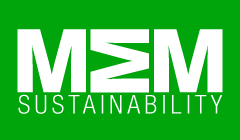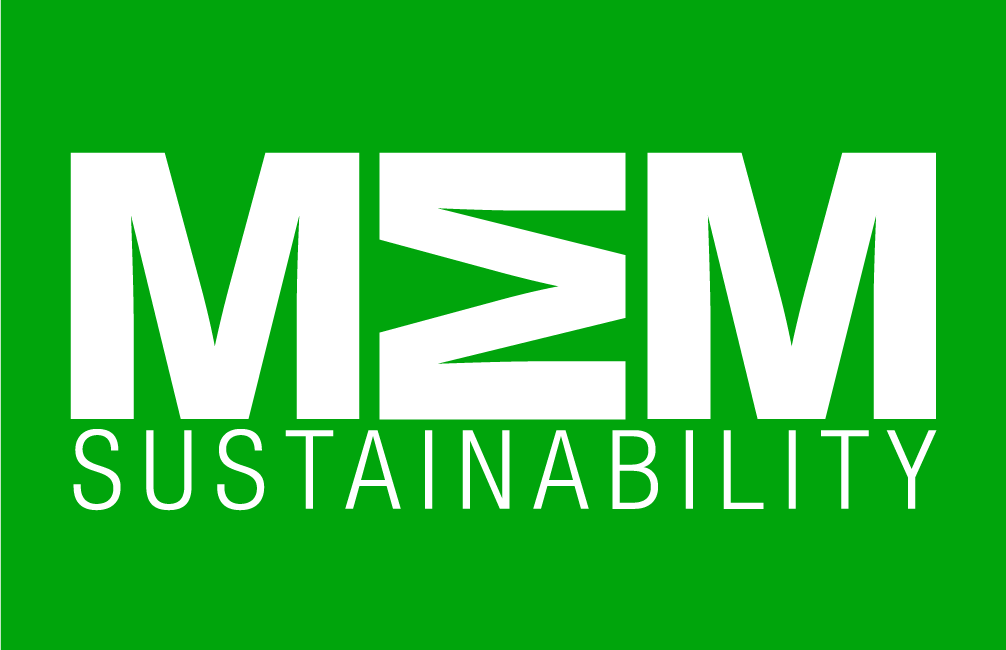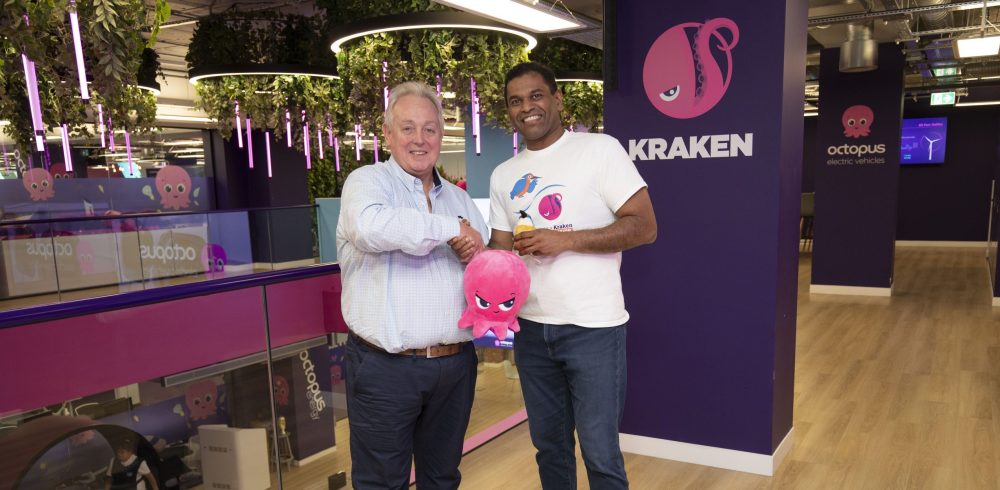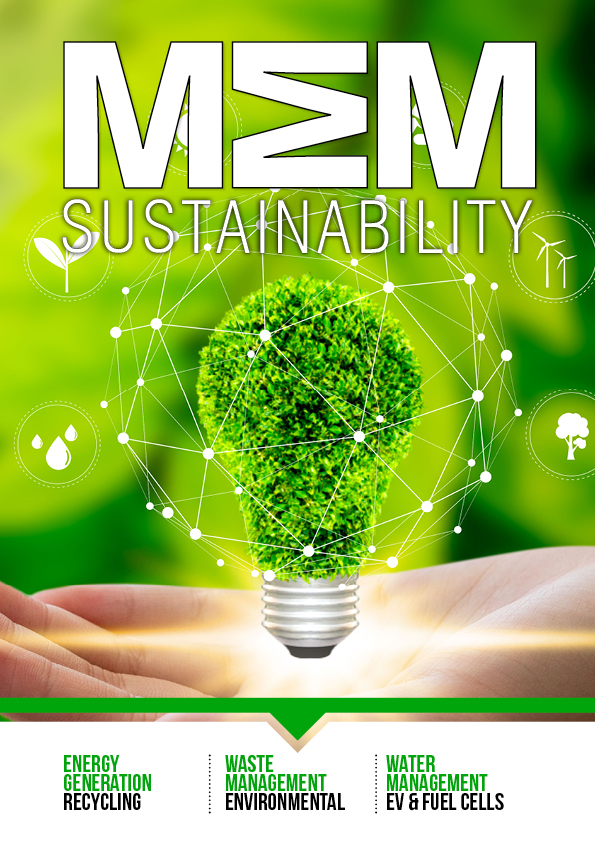The innovative customer service platform Kraken has made a successful transfer from energy to water. Ahead of their presentation at UKWIR’s annual conference, Portsmouth Water chief executive Bob Taylor and Kraken Utilities chief executive Deepak Ravindran discuss their journey from concept to implementation.
How did the collaboration between Kraken and Portsmouth Water come about?
Deepak Ravindran: When Kraken first started looking at water, there was a lot of debate about what kind of customers we were ready to share our technology and operating model with, and Portsmouth Water and Bob’s management team were so exceptional – in having managed to deliver both customer service and much lower cost-to-serve, even without the technology – that we decided they should be the first water customer to bring Kraken to bear.
Bob Taylor: We went through a conventional procurement process. We wanted to partner with an organisation that had significant experience working with smart metering, and were very refreshed by the general approach that Kraken presented to us.
Even though we were taking a new step in the water sector, their experience, track record and ‘can-do’ attitude to challenges gave us a lot of confidence that we that we would succeed.
What are the differences in the way Kraken needs to operate in water over energy?
Ravindran: Almost 70-80% of the processes across the utilities are similar, but there were some major differences. One is the high proportion of unmetered properties in water.
The second big element is that most water companies globally are monopolies, and tend to be property-centric, so we needed to bring into Kraken the ability to have both a property-centric and customer-centric view. In partnering Portsmouth, we also learned how to do social tariffs, which do not exist in energy. That is a capability that we have developed.
Given that all water companies have their networks to manage, we have developed quite a bit of capability around that too – such as connecting to the network and managing outages.
What are the benefits of implementing Kraken at Portsmouth Water?
Taylor: Once Kraken is fully implemented, we envision using it as a tool to stimulate behavioural change.
We think of platforms like this primarily as communication tools, providing information to tell customers things they would not otherwise know – how they use water and how to use it more efficiently. That is the basis of both smart metering and Kraken, and it helps in so many areas.
For example, we can easily identify whether customers have leaks on their own pipes within homes and premises. We can analyse meter readings more frequently – not just twice a year, but every 30 minutes, making it is possible to identify even low-level leaks.
There are also opportunities for cross-sector billing, putting energy and water billing together for example, or energy, water and wastewater. We need to try and sell the concept of smart metering to our customers around savings through wastewater and energy charges too. The less water you use, the lower your energy and wastewater bills.
Kraken is known for creating engaging customer interactions by making data more accessible. How are you going about this in terms of water consumption and customer service?
Taylor: In 2023 Portsmouth Water and Kraken launched The Water Lab, which is a unique opportunity to find new ways to improve the way we deliver water and energy services.
Ravindran: It is early days, but we have built out the interactive channels for web and app and brought our learnings from energy, where this is more advanced.
The Water Lab aims to learn from that and experiment and accelerate the experimentation and trials. That includes gamification and loyalty ledgers, and with that comes visualisation tools so customers can see the impact.
The first thing The Water Lab has tried is using implied data to show customers that if they reduce their water consumption, they will have a reasonable impact on their energy bill. Even showing the estimated impact has led to customers reducing consumption by five percent.
Was there a risk for Portsmouth Water in being the first water company to trial this solution?
Taylor: It was a manageable risk because we are working with a company that has a strong track record and has completed the best part of 30 implementations previously, all successful. The water sector may have a reputation for slow adoption of innovation, but that is changing. For example we are the first water company to be building a reservoir for 40 years. As a relatively small player we were willing to take on a challenge like that, and the key is to understand and manage the risks carefully.
Ravindran: I completely agree. In terms of our own experience, the Portsmouth team have all been amazing in terms of adopting and adapting to the speed we work at.
Taylor: We are starting from a strong place and were well placed in Ofwat’s customer experience measures last year. This will become more challenging when the Institute of Customer Service measures are introduced, but with the customer relationship management possibilities we are developing, I am aiming to stay in the top quartile of performance.
You are also on the board of UKWIR, Bob, what is UKWIR’s role in driving innovation and research in water?
Taylor: UKWIR is a collaboration of water companies around the UK and Ireland, who come together on common concerns and issues and common challenges, many of which are totally new. The job of UKWIR is to look at what is coming over the horizon and drive forward knowledge and understanding in those areas.
This involves not just collaboration across the industry, but globally, with similar organisations across the world, which is why it is so important to share this cross-sector story at the UKWIR Annual Conference in October. As an independent body, UKWIR works very closely with universities, suppliers and a whole range of other funding organisations, to create a scientific and technical basis for the discussions and developments going on in our sector.
UKWIR’s 5th Annual Conference takes place in London on 3 October 2024. Bob Taylor and Deepak Ravindran are taking part in the session – Learning across sectors: Delivering an innovative customer experience. To register, visit https://conferences.aquaenviro.co.uk/events/conferences/ukwir-5th-annual-conference/
Manufacturing & Engineering Magazine | The Home of Manufacturing Industry News















